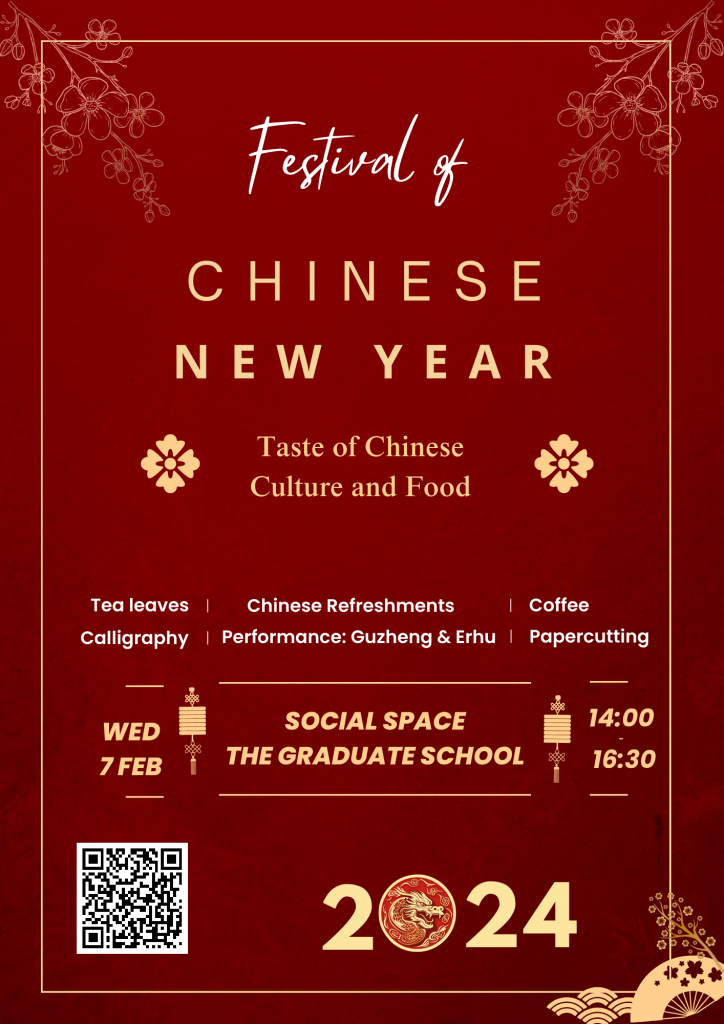Taste of Chinese Culture and Food
品味中华文化与美食
Wednesday 7th February 2024
14:00-16:30
Social Space, The Graduate School, QUB
Note that this is a special event for QUB PGT/R students only.

Immerse yourself in the rich tapestry of Chinese culture through a series of celebratory workshops and activities. Here’s a sneak peek into what we have in store:
Workshop 1: Chinese Tea Ceremony and a Taste of Tea Refreshments
Tea ceremony is a special skill in China, transforming this everyday activity into a beautiful art form. Participants will enjoy an authentic tea ceremony and taste several different species of Chinese tea.
Workshop 2: A Try of Chinese Calligraphy
Studying Chinese calligraphy helps us see the lively heart of Chinese culture and the strong, lasting national spirit that the art of calligraphy carries.
Join us and create your own Chinese calligraphy.
Workshop 3: Chinese Style Papercut Workshop
This workshop is designed to offer a hands-on experience, where participants can uncover the symbolism and storytelling embedded in each papercut, and witness the fusion of history and creativity as they create their own personalized papercut masterpieces.
Workshop 4: A Try of Chopsticks
Challenge your dexterity and finesse as you attempt to pick up ping-pong balls using chopsticks and skillfully transfer them to another box. We’ve even got prizes for the most successful participants.
Workshop 5: Music Performances: Guzheng and Erhu
The Chinese guzheng is a traditional stringed musical instrument with a history spanning over 2,500 years. The guzheng, introduced to Japan during the Tang Dynasty, evolved into the koto, reflecting Japanese musical styles. In Korea, historical records show that the guzheng inspired the creation of the gayageum during the Silla Dynasty, later adapted to Korean musical traditions.
The Chinese er’hu is a two-stringed musical instrument, often used in Chinese traditional music. It has a long neck and a small body covered with snake skin. Er’hu can be played by moving a bow across its strings, and it makes a unique, emotional sound that can be both sad and happy. The er’hu is very popular in China and is often heard in Chinese orchestras and folk music.
Join us for a celebration filled with cultural exploration, hands-on activities, and delightful performances. Let’s welcome the Year of the Dragon together!
